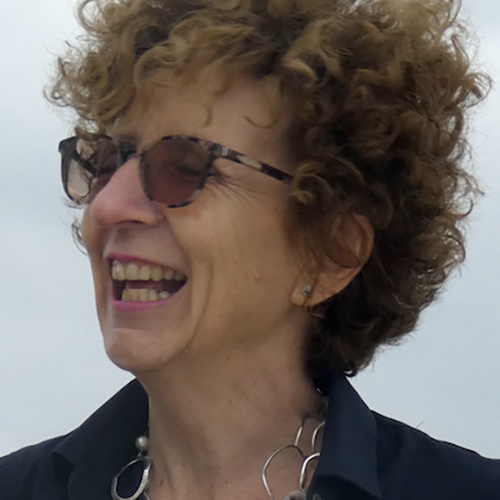
21 March 2024
Helen Barnes, a coach, coach supervisor, and occupational therapist, reflects on the differences and similarities between coaching and therapy.
When I was asked to write this blog, I thought: I’m not a writer! How am I going to begin? Julia Cameron, in her book The Artist’s Way, talks about the ‘morning pages’, a daily practice of handwriting three pages first thing in the morning, as a path to creativity. She helpfully reassures the reader that there is no wrong way to write them, and that they can be about everything and anything that crosses your mind, like a stream of consciousness.
This helped me off the starting block, and several iterations later, here are my thoughts about a question I have been ruminating over for a few years now: what are the differences and similarities between coaching and therapy? This is not an academic piece, nor (you’ll be glad to know) a stream of consciousness, rather a reflection born out of my own experience as a coach and trainee psychotherapist, and of being coached and receiving therapy.
To help explain my curiosity, I’m going to take you back to the mid-1990s where it all began, with a six-week course offered by the European Social Fund for women who were considering a career in the therapeutic field. At that stage I was a broker in the City of London. It was one of those life-changing experiences and, long story short, I ended up leaving my job to train as an occupational therapist, graduating in 2001. You might not know what occupational therapy is, and word count prohibits description, but for those interested in finding out more about this wonderful profession, please visit this Occupational Therapy website.
I thought I had found my niche in life and began working for the NHS, but after two years, events took me to Brussels, and in 2005 after completing my master’s in occupational therapy, I was recruited to the European Commission’s Medical Service, working within a multi-disciplinary team in a sector known (rather bizarrely) as the psychosocial intervention sector. Our role was to support staff experiencing difficult life situations – at work, in relationships, or in mental health, etc. I developed a professional interest in the journey for staff who were returning to work after a long absence due to conditions such as depression, anxiety, and burnout. This work intrigued me and begged the question, how could I encourage my clients to become more active in their own recovery? It was the catalyst for looking into coaching.
Fast forward to 2008, when I took my first tentative steps into training, and eventually to my certificate in 2014 with the i-coach academy programme. I found that coaching skills, in conjunction with my occupational therapy background, added a certain je ne sais quoi to my work, another dimension if you like, which began to feel less sisyphean and more co-created. It was very exciting, and continued to be so, as I developed my practice and work within the European Institutions.
But then, to quote the well-known adage, ‘life happens when you are busy making plans’. Somewhat unexpectedly, the UK held a referendum (I won’t mention the B-word), the outcome of which produced a tectonic shift in my life direction. The upshot? In 2018 I took a sabbatical and returned to the UK as a coach with the South London and Maudsley NHS Foundation Trust, on a project funded, paradoxically, by the European Social Fund. The project provided coaching to unemployed or economically inactive clients with a mental health condition, to support them back into the workplace. My patch was Lambeth in South London, with clients from diverse backgrounds whom I would meet in many different settings, including libraries, sports halls, job centres and cafés. Many of them had been in therapy for years, and this was their first experience of coaching.
Often, I was told how although they had found therapy helpful, coaching gave them a sense of picking up the reins of their life and starting to take action, which they found therapeutic. Being met on their own turf in a non-medical setting was empowering, giving them the sense that we were working together towards their desired outcome. It was rich and rewarding work. But still I had this question about the differences and similarities between coaching and therapy, and when the contract ended, I decided, rather than return to Brussels, I would set up my own practice and explore further.
The EMCC Global Code of Ethics clearly states: ‘Members will operate within the limit of their professional competence. Members should refer the client to a more experienced or suitably qualified practising member where appropriate.’ So not only was it a personal interest, it was a professional imperative to be able to more clearly differentiate this for myself and my clients.
My husband often calls me ‘forensic’, but I prefer the word ‘curious’, because there is no crime that requires investigation, but there is a question to answer. So I began psychotherapy training, starting with a one year certificate in humanistic counselling before enrolling on the five year MSc in Gestalt psychotherapy. I have completed three years of the programme and am currently on a break from study while I gather more experience of face-to-face work. I split my life between my own coaching practice and as a volunteer counsellor with a charity.
‘Coaching is not another way of doing therapy,’ Julia Vaughan Smith says in her book, Therapist into Coach (2007). The models of working are different, but increasingly counsellors are found in settings with a limited number of hours and, like coaching, where recognised outcomes are demanded. Gestalt therapy does have goals, but these are usually process goals rather than the more behavioural outcomes sought by coaching clients. However, my own experience in both fields is that often what the client actually wants is only revealed after several sessions, highlighting the importance of good contracting, in terms of allowing for new, unanticipated outcomes to emerge.
I have clients with a mental health diagnosis whom I coach, and clients without a mental health diagnosis whom I see in counselling. It is not uncommon that through coaching, a client may come to recognise the need for longer-term therapeutic work if, for example, they lack the internal resources to benefit. Conversely, a counselling client may come to coaching wanting to address a specific behavioural goal. These can be fruitful collaborations, allowing the client to implement changes in their way of being, while being supported to explore their responses to the challenge of making such changes.
I’m going to leave it here for now, as it is clear that it is not clear. My reflections have led me to conclude that there are similarities and distinct differences, and skills from each profession are useful in the other. The foundation stones to both are the ability to establish a working alliance and deep listening skills. Regular supervision is key, as sometimes my therapy supervisor will remind me that I am getting ‘too busy’ with a client who needs more space and time; and my coaching supervisor points out that I am being influenced by diagnosis rather than potential.
It is a work in progress. I’ll report back in a year or two with more on this!
References
Julia Cameron (1992), The Artist's Way: A Spiritual Path to Higher Creativity. New York, NY, G.P.
EMCC (2021) Global Code of Ethics
Julia Vaughan Smith (2007), Therapist into Coach. Maidenhead, Open University Press
About Helen Barnes

Helen is a coach, coach supervisor, and occupational therapist who is currently three years through an MSc in Gestalt psychotherapy. Her professional interest is in exploring what keeps a person well in the workplace, particularly managing mental health and wellbeing; returning to work following burnout or long-term illness, and supporting neurodiverse and neurodivergent thinkers to work at their best. Her experience has been rich and varied, with a diverse range of clients in the NHS, European Commission, voluntary, social enterprise and corporate sectors.
Photo by Alex Green